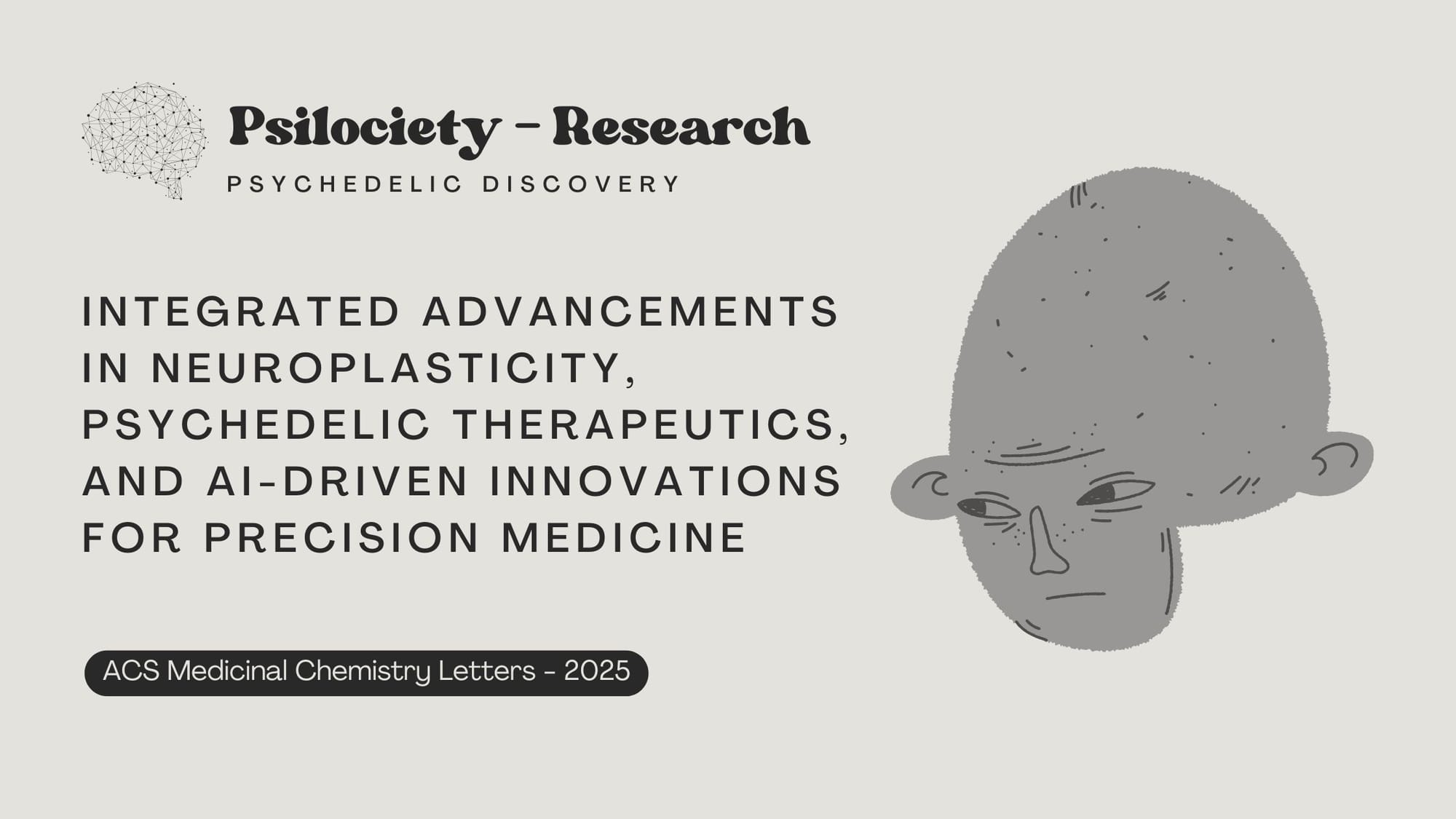Integrated Advancements in Neuroplasticity, Psychedelic Therapeutics, and AI-Driven Innovations for Precision Medicine
Exploring how AI-driven drug discovery and psychedelic therapeutics are revolutionizing precision medicine for mental health and neurology.

Title & Introduction
- Paper Title: Integrated Advancements in Neuroplasticity, Psychedelic Therapeutics, and AI-Driven Innovations for Precision Medicine
- Published In: ACS Medicinal Chemistry Letters
- Publish date: March 6, 2025
- Authors: Robert B. Kargbo
- Objective: To explore recent developments in psychedelic therapeutics, neuroplasticity modulators, and AI-driven precision medicine for treating neurological and psychiatric disorders.
- Importance: Integrating psychedelic compounds, neuroplasticity enhancement, and AI-driven drug discovery could revolutionize treatments for mental health and neurological conditions.
Summary & Takeaways
Key Takeaway: AI-driven approaches, combined with psychedelic therapeutics and neuroplasticity research, could accelerate drug discovery and optimize personalized treatments for neurological and psychiatric disorders.
Practical Application: AI-enhanced psychedelic drug development could lead to more precise, effective, and safer treatments for conditions such as depression, chronic pain, and neurodegenerative diseases.
Key Background Information
- Context: Advances in neuroscience and AI are opening new avenues for treating psychiatric and neurological conditions by leveraging psychedelic-inspired compounds and neuroplasticity-enhancing drugs.
- Hypothesis: Psychedelic-derived therapeutics, when optimized using AI-driven drug discovery, can provide targeted and efficient treatments for psychiatric and neurodegenerative diseases.
Methodology
- Study Design: Review of advancements in psychedelic compounds, neuroplasticity enhancers, and AI-driven precision medicine.
- Participants: Review includes findings from preclinical and clinical trials.
- Intervention/Exposure: Discussion of novel tryptamine derivatives, AI-based drug modeling, and targeted receptor modulation techniques.
- Controls: Comparison to traditional drug discovery and therapeutic approaches.
- Duration: Varied, as the review spans multiple ongoing research efforts.
Key Findings
Primary Outcomes:
- AI-powered drug discovery accelerates the identification of novel psychedelic compounds with optimized therapeutic profiles.
- Neuroplasticity modulators, including psychedelics, can enhance brain resilience and cognitive function.
- Psychedelic-inspired treatments show promise for addressing treatment-resistant depression, chronic pain, and movement disorders.
Secondary Outcomes:
- AI enables predictive modeling of drug-receptor interactions, enhancing precision medicine approaches.
- Psychedelic compounds can be tailored for improved efficacy and reduced side effects using computational tools.
- Integration of neuroplasticity-focused therapies with AI-driven platforms could streamline clinical translation.
Interpretation & Implications
- Conclusion: AI-driven precision medicine combined with psychedelic therapeutics and neuroplasticity research represents a promising frontier in mental health and neurology.
- Implications: These advancements could lead to more personalized and effective treatments for psychiatric and neurodegenerative disorders.
- Limitations: Regulatory barriers, ethical concerns, and the need for extensive validation in clinical settings.
Researchers & Publication
- Researchers: Robert B. Kargbo
- Publication Name: ACS Medicinal Chemistry Letters
- Study URL: https://doi.org/10.1021/acsmedchemlett.5c00112

